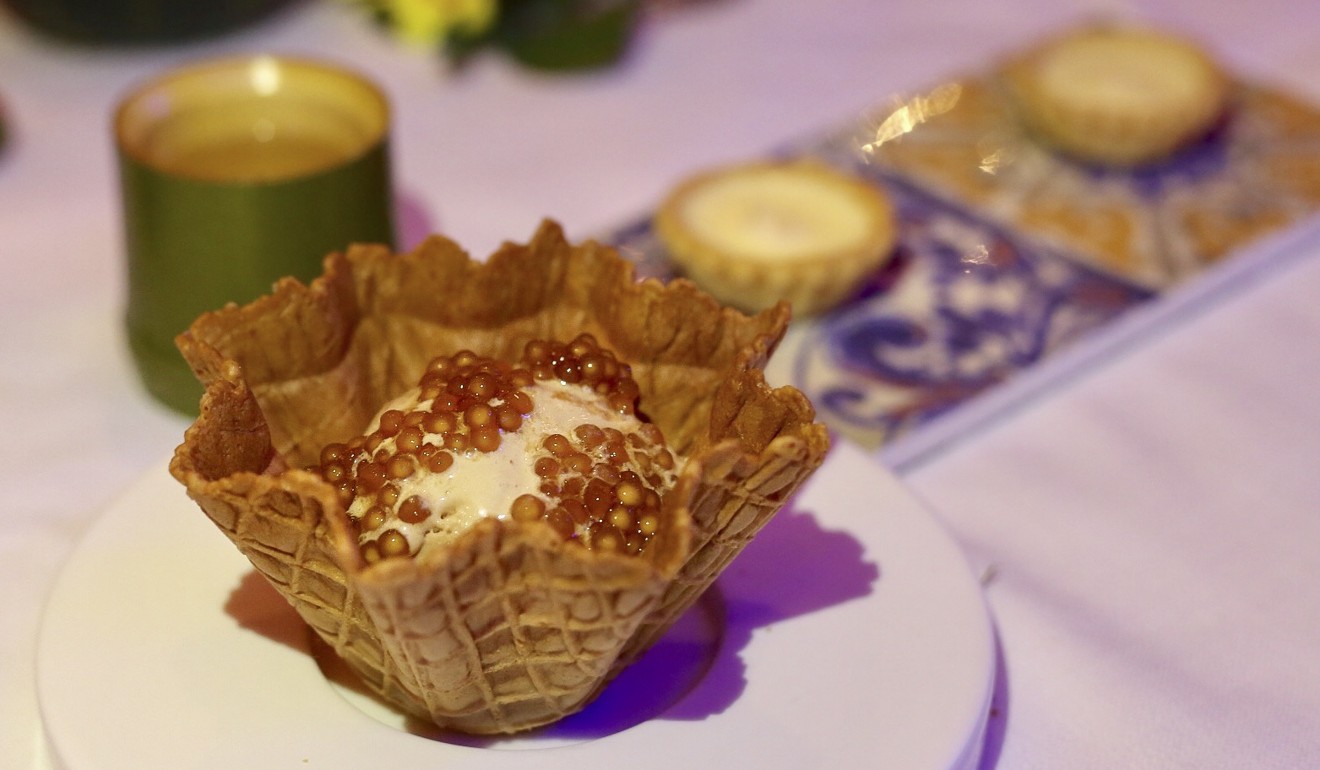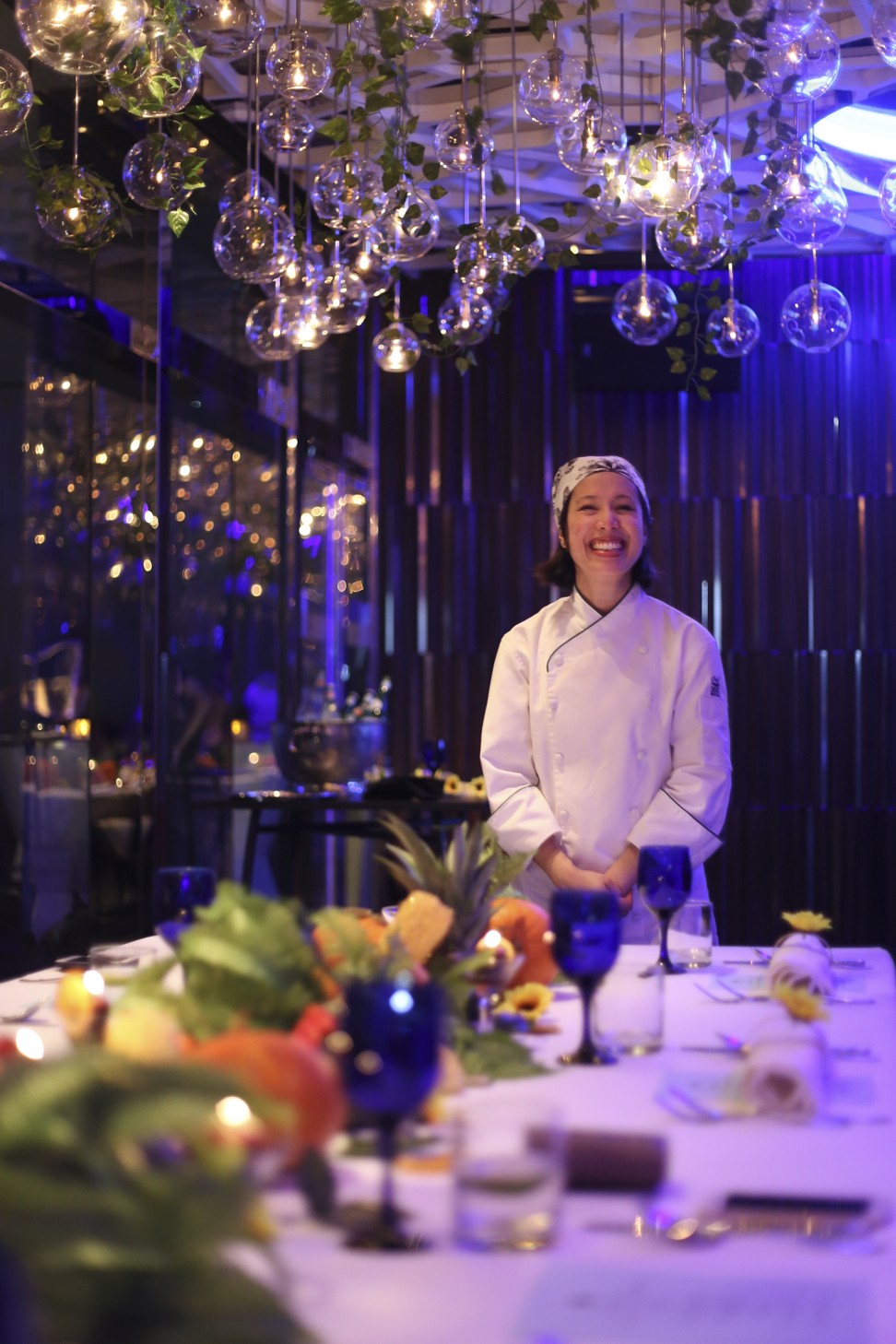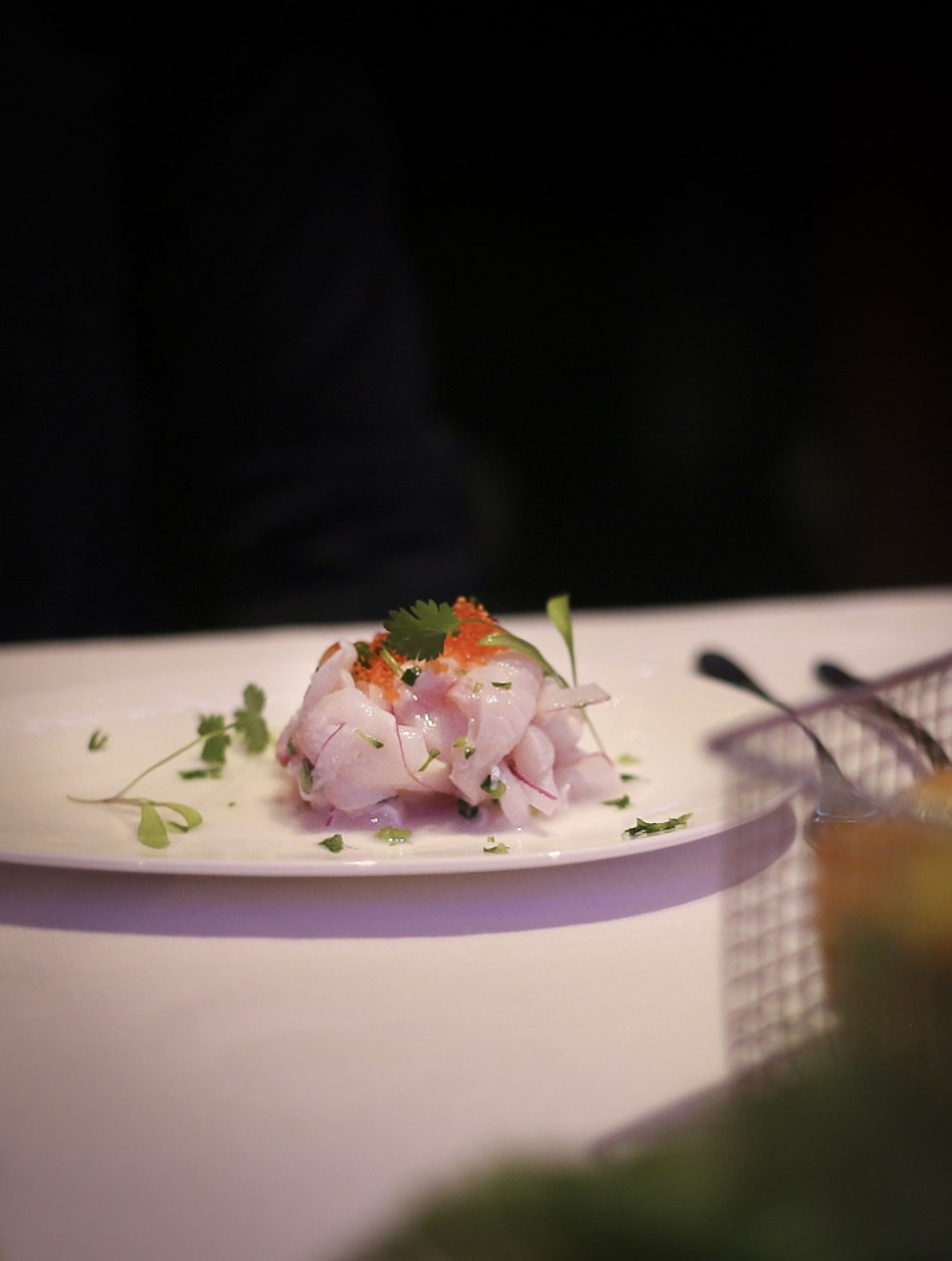
Blind MasterChef winner Christine Hà talks learning how to cook and dealing with vision loss
After losing her mother to cancer when she was 14, the winner of the third season of the US series starting experimenting with cooking in college in a bid to recreate the food she had grown up eating

I was born in Los Angeles to Vietnamese parents and raised in Houston, Texas. My parents left Vietnam for the US in 1975, where I was born four years later. I grew up straddling two different cultures, which was difficult for me. I would go to school wishing I could eat bolognese cheese sandwiches, but my mom would pack me really smelly lunches. It wasn’t hip then to eat fish sauce and pork belly, like it is now.
I was an only child growing up. I lost my mom to cancer when I was 14. That was a tough year. But I feel like it has made me into a stronger person, and helped prepare me for even more hardships later in life.
I first started losing vision, in one of my eyes, at the age of 20, when I was in undergraduate college. I have a disease called neuromyelitis optica, but it wasn’t correctly diagnosed for three years. It is a disease that’s similar to multiple sclerosis where your immune system attacks your neurological system and it primarily affects the optic nerves - which is how I lost my vision - and the spinal cord.

I was relieved when I was correctly diagnosed because I would rather know what it is that I have. It takes a while to adapt.
I would burn things a lot in the beginning or the food would end up all over the floor and counter. But I just kept at it.
It took time to process the grief because I was losing my vision and my independence. Every time I would get used to it, something else would happen. For example, I would have long periods of time where I had trouble walking because it affected my spinal cord. Fortunately, my health has been stable for 10 years now.
My actual undergraduate degree is in business. However, my parents wanted me to be a doctor, so I already failed them in that way. I worked in the corporate world for a while, but when I started experiencing vision loss and other health issues, I had to leave work.
It made me rethink life and what I really wanted to do. I felt like I wasn’t really making a tangible difference in people’s lives. So I decided to go back to school for creative writing because during my period when I was riddled with health problems, my only salvation was listening to audio books. It was my form of escaping, and so it reignited my love for literature.
When I was in college, I moved out of the school dorms into an apartment. I realised, I had to learn how to cook, as I could no longer depend on the cafeteria. I also realised that I missed my mom’s cooking and she never taught me how to cook before she passed away. She also had never written down any of her recipes.

So I decided to teach myself how to make some of the food I grew up eating. I would buy cookbooks and just experiment. I would burn things a lot in the beginning or I wouldn’t know how to stir-fry something and the food would end up all over the floor.
But I just kept at it because I had to and I enjoyed the process. Part of it felt like science and part of it felt like art. Knowing that I created something that brought joy to somebody else was what ignited my love for cooking.
It’s hard to bake things when you can’t see it and you can’t touch it either. I use my hands for a lot of things. Working in a new kitchen is obviously hard, as is teaching people how to work with someone that’s visually impaired. I have to constantly be talking to my team, and they have to tell me if they have moved something. I think I pay much more attention to different nuances of flavours. When I take a bite, I tend to dissect it more.

The producers [of MasterChef] were going around and doing auditions in different cities. I found out they were auditioning in Austin, which is not too far from Houston. And, my husband John, is a fan of [judge] Gordon Ramsay. He was like, “You have to try out. You have to let Gordon call you a donkey.”
I’ve been given the opportunity to advocate for people who are socially marginalised, making people more aware and educated about inclusivity.
His whole point was, “Your story is interesting. You will probably at least get through the first round because people would want to see how a blind person can cook, and you can definitely cook.”
So I just did it. I didn’t think I was going to get far. I didn’t even want to be on television. But what nudged me to really audition was I was studying creative writing, and as an artist, you are always trying to experience different things in life so you can feed your creativity. So I thought, if anything, I would go try out and I would come home and have a good story to write about.
[Competing in MasterChef] is even harder than what you see on television. It’s very long hours of filming, so we would film anywhere from eight to 16 hours a day, six days a week. They made us live in hotels and we didn’t get to go home for two months. They wanted to keep everything a secret, so they don’t let you call home and talk to your family, except for once every three weeks. Everyday was a new challenge; you don’t know what’s going to happen. You don’t know which friend will go home next. It’s very stressful. So in the show, I was crying in every other episode.
My life did a complete 180 [after winning MasterChef]. It’s completely different because all of a sudden, people knew my name. That was kind of strange at first but I have been given some really cool opportunities to travel a lot and do different programmes. I really love the life I live right now. I feel like I work really hard but it’s also really rewarding. The bigger picture of how my life changed is I’ve been given the opportunity to advocate for people who are socially marginalised, making people more aware and educated about inclusivity.